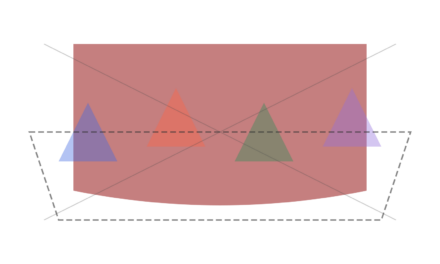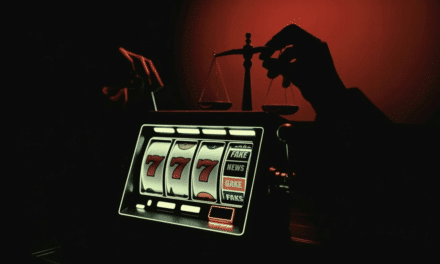Helsinki, September 2025 – Finland’s gambling landscape is on the cusp of a seismic shift. The government, led by Prime Minister Petteri Orpo, is set to dismantle Veikkaus’ long-standing monopoly, opening the door for licensed private operators to offer casino games and sports betting. The reform, slated for implementation in January 2027, promises a regulated market but leaves critical questions unanswered—most notably, the persistent issue of slot machine placement. Buckle up: this is a tale of half-measures, political compromises, and systemic failures dressed up as progress.
A Monopoly Broken, but Not Entirely
The proposed legislation, finalized in spring 2025 and now slogging through parliamentary committees, ends Veikkaus’ stranglehold on Finland’s €1.2 billion gambling market. Private operators will soon compete for a slice of the pie, provided they secure licenses to market casino games and sports betting. Veikkaus, however, retains exclusive rights to lotteries and—crucially—the slot machines scattered across supermarkets, bars, and kiosks. This carve-out is no small detail; it’s the rotten core of a reform that claims to prioritize harm reduction while ignoring its own evidence.The numbers don’t lie.
Finns lose roughly €100 million annually to slot machines, with the heaviest losses borne by those in precarious socio-economic conditions. Studies from the Finnish Institute for Health and Welfare (THL) reveal a damning pattern: slot machines are disproportionately placed in lower-income neighborhoods, preying on the vulnerable. Yet, despite a government-commissioned report explicitly recommending the relocation of these machines to dedicated gaming halls, the political steering group—comprising state secretaries—opted to keep the status quo. Why? Follow the money.
Slot Machines: The Sacred Cash Cow
Veikkaus pays commissions to retailers for hosting slot machines, a tidy revenue stream for shopkeepers and a lifeline for the state-owned operator. The decision to maintain this scattered placement defies logic, research, and basic ethics. The THL and the Ministry of Social Affairs and Health’s evaluation group concluded that moving slot machines to controlled venues would significantly curb gambling harm. Instead, the government has chosen to prioritize revenue over responsibility, ensuring that slot machines remain a fixture in everyday spaces like grocery stores—a practice unparalleled in Europe.
Sweden and Norway, for instance, have half as many machines and far stricter placement rules.Let’s be blunt: this isn’t reform; it’s a rebrand. The government’s refusal to act on its own research reeks of political cowardice, pandering to vested interests while low-income communities bear the brunt. The introduction of mandatory identification for slot machines and the pandemic-era shift to online gambling have already dented slot revenue, yet the state clings to this outdated model like a gambler chasing losses.
A New Era of Oversight? Don’t Hold Your Breath
The reform introduces a new Licensing and Supervisory Authority, set to launch in 2027, tasked with regulating private operators and enforcing compliance with the updated Gambling Act. This sounds promising until you realize the authority’s funding will come primarily from licensing and supervisory fees paid by the very companies it oversees. Conflict of interest, anyone? The state’s assurance that it will retain majority ownership of Veikkaus—valued at several billion euros—offers little comfort when the company could eventually be partially privatized with parliamentary approval. The lack of transparency around Veikkaus’ market value only fuels skepticism.
What’s Next for Finland’s Gambling Market?
The reform is a step toward modernization, no question. Opening the market to private operators aligns Finland with other European nations and could foster innovation and competition. But the devil is in the details—or, in this case, the lack thereof. By preserving Veikkaus’ slot machine dominance and ignoring evidence-based recommendations, the government undermines its own harm reduction rhetoric. The ongoing parliamentary debates, with dozens of expert opinions piling up, may yet yield tweaks, but don’t expect miracles. The bill is headed for a vote by year’s end, and the political will to challenge Veikkaus’ sacred cows appears nonexistent.
The Bigger Picture: A Systemic Failure
Finland’s gambling reform exposes a deeper truth about the iGaming industry: systemic issues demand systemic solutions, not patchwork compromises. Slot machines in supermarkets aren’t just a Finnish quirk; they’re a symptom of a state addicted to gambling revenue, unwilling to confront the social costs. The data is clear—lower-income groups are disproportionately harmed, and scattered slot machines exacerbate the problem.
Yet, the government’s response is to tinker around the edges, liberalizing the market while preserving the most harmful elements of the status quo.For players, the reform means more choice, but for society, it’s a missed opportunity.
If Finland wants to lead in responsible gambling, it needs to stop treating slot machines as untouchable and start prioritizing people over profits. Until then, this reform is just another spin of the wheel—flashy, promising, but rigged to favor the house.
Disclaimer: This article and its accompanying images may have been enhanced using AI tools to ensure smoother content delivery and visual appeal.





